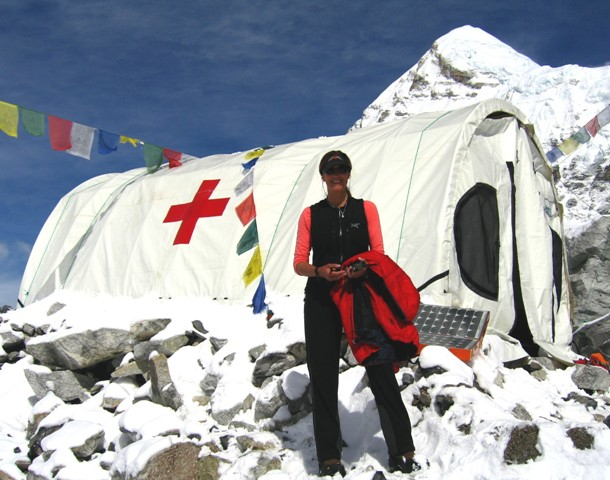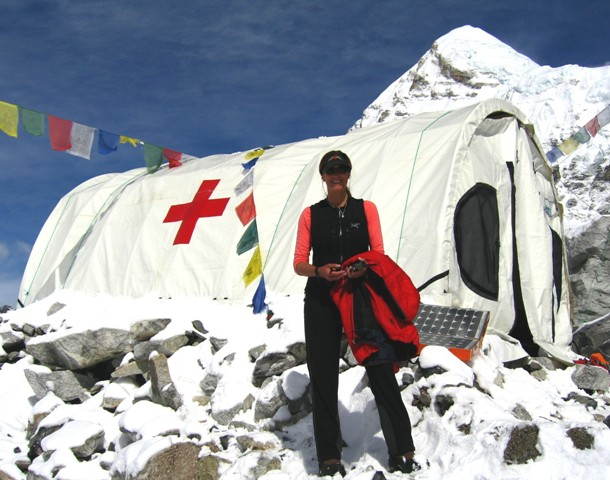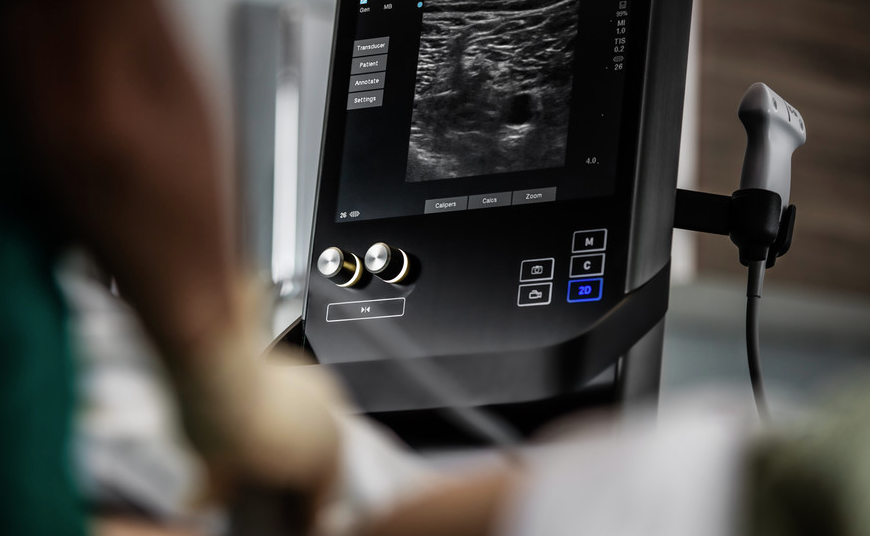
Dr. Luanne Freer is, to put it mildly, comfortable with being uncomfortable.
A trained emergency medicine physician who grew up in the Washington DC area, Dr. Freer serves as medical director of Yellowstone National Park through Medcor Inc. When she’s not busy with her full-time job, or volunteering to save lives in Sierra Leone’s Ebola outbreak, you might find her working at the emergency clinic that she founded, Everest Base Camp Medical Clinic (Everest ER).
During the annual climbing season, which usually runs from April through May, Dr. Freer collaborates with Nepali and foreign doctors; the tent clinic at the Mt. Everest Base Camp provides medical care to climbers, visitors, Sherpas, and local villagers. It’s funded through donations, and the payment of nominal fees by climbers.
Mountain medicine specialists learn how to spot and treat the various pathologies associated with altitude sickness, from headaches and nausea, to pulmonary edema. They do everything from set broken bones to treat frostbite; Dr. Freer even pulls infected teeth (using regular pliers) for local villagers seeking dental care.
For Dr. Luanne Freer, the opportunity to save lives while working in a cramped setting with very few medical supplies offers an opportunity to tap into her own creativity; she often refers to her style as a sort of “McGyver version” of emergency medicine.
Dr. Freer didn’t originally plan to end up running an annual clinic at the base of the highest (and deadliest) mountain in the world. Back in 2002, while volunteering with the Nepali NGO Himalayan Rescue Association (HRA), she observed how many climbing expeditions in Nepal had no trained medical personnel traveling with them.
Even worse, some expeditions that included physicians or trained medical personnel were known to turn away local Nepali and Rai populations who sought their medical expertise.
As Oprah Magazine explained, “Freer, who had the requisite knowledge from her years working in the Northern Rockies… was determined to find a way to provide better medical care to both climbers and the hundreds of Nepalese working on Everest.”
Dr. Freer returned to Nepal a year later to open Everest ER.
During the 2018 climbing season, Dr. Freer borrowed an iViz point-of-care ultrasound machine through Sonosite’s ultrasound system temporary loan program. She describes a use case that took place during that time.
This past season, we had two Nepali physicians, Dr. Suvash Dawadi from Kathmandu, and Dr. Subarna Adhikari from Pokhara. Our visiting physician was Dr. Brenton Joseph Systermans from Australia.
At dusk one night early in the season, we were radioed by a climbing team at the far end of Everest Base Camp to inform us that one of their film crew had developed sudden onset severe epigastric pain.
The Sonosite system was easy to transport to their camp along with our 'grab bag'.
We found the patient obtunded in his tent. Communication with the patient and his teammates was difficult because of a language translation issue, so we used a mix of their native language, Nepali, and English to gather somewhat of a history.
After initial resuscitation with IV fluids, analgesia and gastric medications, we were able use the Sonosite to provide 'in-tent' (as opposed to bedside—I guess that is real POCUS!) diagnostic aid. We were able to rule out significant pathology like a leaking triple A, perforated peptic ulcer, or biliary colic as the source of the pain.
Following resuscitation, we gathered a team to stretcher-carry the patient the 800m back to our clinic in the dark. We continued to monitor and treat him overnight.
Fortunately, his condition improved such that he was able to walk to the helipad the following morning. Using POCUS gave us reassurance in a difficult situation with limited communication and resources.
FUJIFILM Sonosite products are tested to operate in harsh conditions and environments; however some conditions may exceed tested limits of the equipment. If you have questions about product capabilities, please check with your local FUJIFILM Sonosite representative.
Learn About Sonosite Ultrasound Durability
Sonosite ultrasound machines were originally built for military use, so battle-grade durability was a must. That’s why we drop them, bake them, shake them, and test them under extreme conditions. Here’s just some of what our machines can handle.



